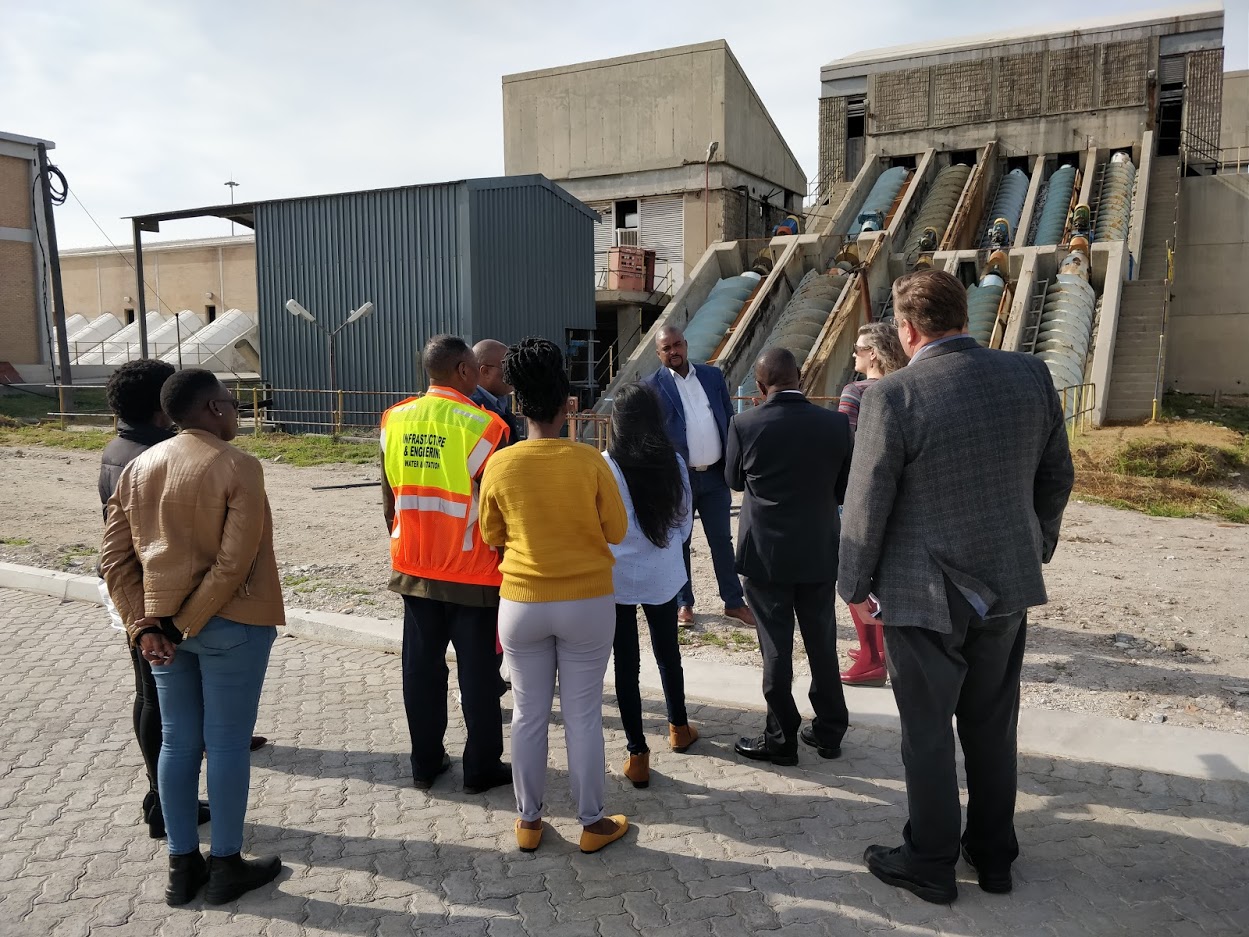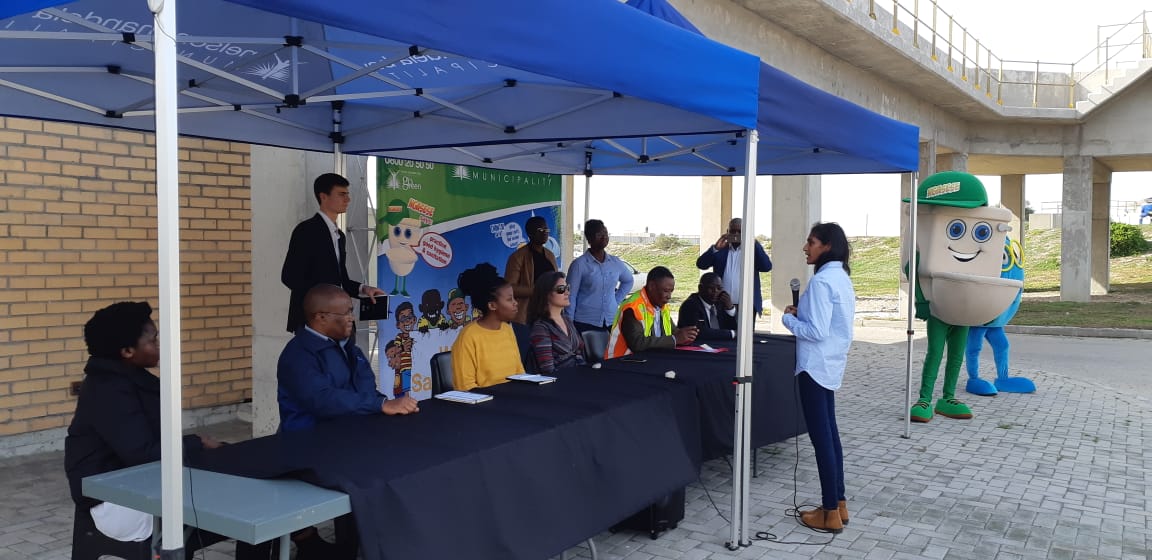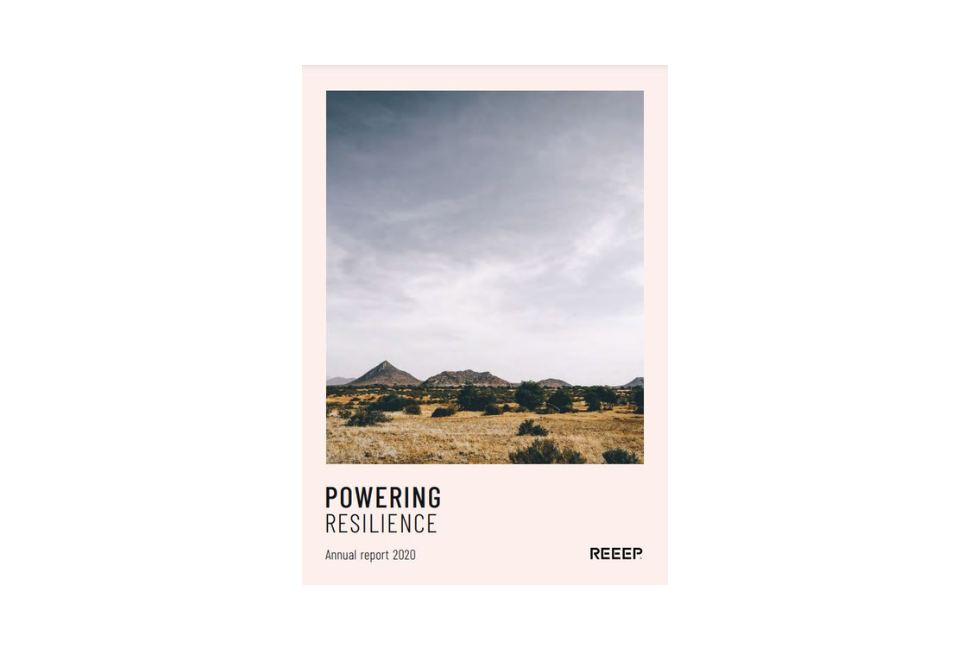In the presence of delegates from the European Union and the United Nations Industrial Development Organization, Nelson Mandela Bay Metropolitan Municipality today inaugurated a new, state-of-the-art energy management system at Fishwater Flats Waste Water Treatment Works. The system was installed with the assistance of the Climate Change, Clean Energy and Urban Water in Africa programme, funded by the European Commission, implemented by UNIDO and executed by REEEP.
In the presence of delegates from the European Union and the United Nations Industrial Development Organization, Nelson Mandela Bay Metropolitan Municipality today inaugurated a new, state-of-the-art energy management system at Fishwater Flats Waste Water Treatment Works. The system was installed with the assistance of the Climate Change, Clean Energy and Urban Water in Africa programme, funded by the European Commission, implemented by UNIDO and executed by REEEP.
In 2015, the Department of Energy estimated that by strategically replacing old machinery and outdated technology with new, energy-efficient solutions, municipalities could save an average of 47% on the electricity bills in their water infrastructure. Making informed investment decisions, however, requires detailed information on assets’ current energy use and the potential savings to be made through upgrades. Besides, technical knowledge and capacity is required to identify appropriate solutions and lead the process from the concept stage via financing, tendering and contracting through to installation.
The Climate Change, Clean Energy and Urban Water in Africa project worked closely with technical staff in the water and energy departments at NMBM to establish priorities for interventions, carry out baseline energy audits and support the procurement and installation of the new energy management system. It also provided an intense programme of capacity building and stakeholder engagements, facilitating engagement between the municipality and a variety of potential partners in the private and public sectors.
The new system measures the energy use of motors powering sludge aeration mixers. These motors are the largest consumers of energy at the plant, though the municipality was previously unable to measure how much energy they used exactly. Using the new data provided by the energy meters, the municipality can now begin to plan for optimisation of the operation of the motors, through the installation of variable speed drives, or even wholesale replacement by fine bubble aeration, a vastly more efficient method for aerating sludge.
The lessons learned through the Climate Change, Clean Energy and Urban Water in Africa project have been published in two newly launched reports. The first, a Policy Brief, provides policy recommendations to the South African Government to stimulate the uptake of energy efficiency solutions in municipal waterworks, to cut costs, reduce greenhouse gas emissions and improve service delivery. The second is a Best Practice Guide for municipalities, which presents the different steps they should take to ensure successful implementation of energy efficiency interventions.
Left: Members of the EU, UNIDO and REEEP delegations and municipal officials attend a presentation at Fishwater Flats Waste Water Treatment Works.
At the event, Lidia Afonso, representing the European Union, said the EU was pleased with the evident potential for energy savings unlocked by the project. Acting Plant Maintenance Director Lunga Mahote expressed his confidence that the successful implementation and operation of the energy management system could be replicated in other South African municipalities. Barry Martin, Director of Water and Sanitation at Nelson Mandela Bay Municipality, said that the municipality could use its experience of the pilot programme to help design future projects with other municipalities. UNIDO’s Nokwazi Moyo noted that the project partners are exploring the possibility of a next stage.
Nelson Mandela Bay Municipality and the project’s other host municipality, the tiny !Kheis Local Municipality in Northern Cape, have demonstrated how energy efficiency interventions can be successfully implemented. The project partners hope that many other municipalities will implement the project’s lessons learned in their own water infrastructure, and exploit the enormous potential for cost savings and climate change mitigation that such interventions offer.
Left: The delegations on the tour of Fishwater Flats Waste Water Treatment Works.





